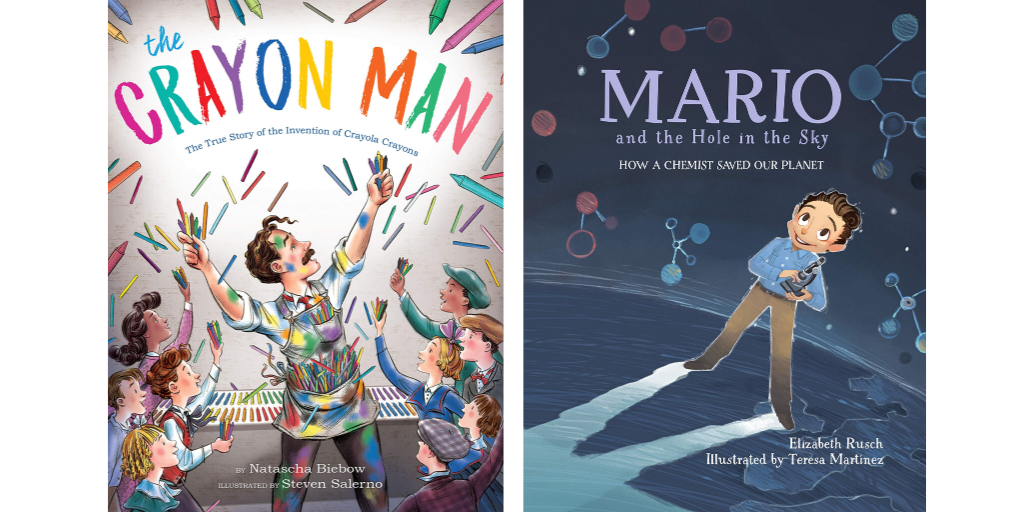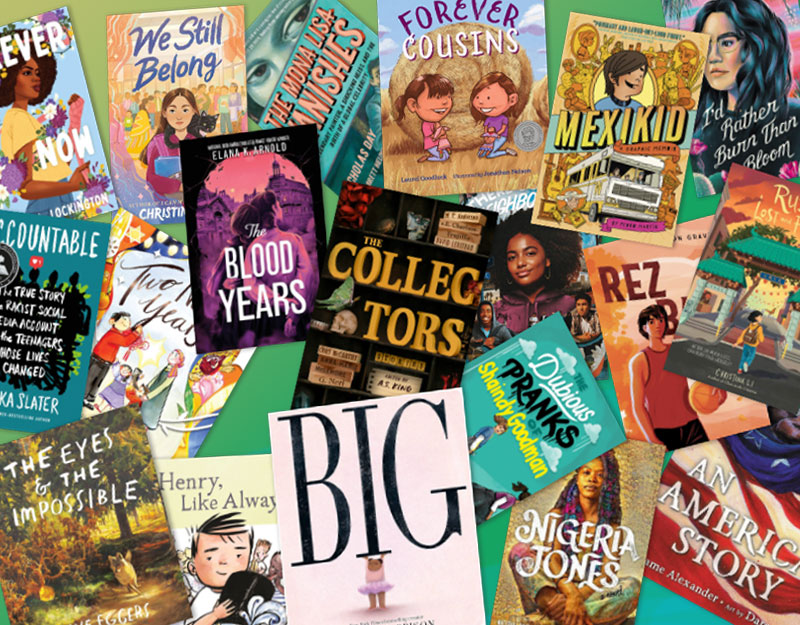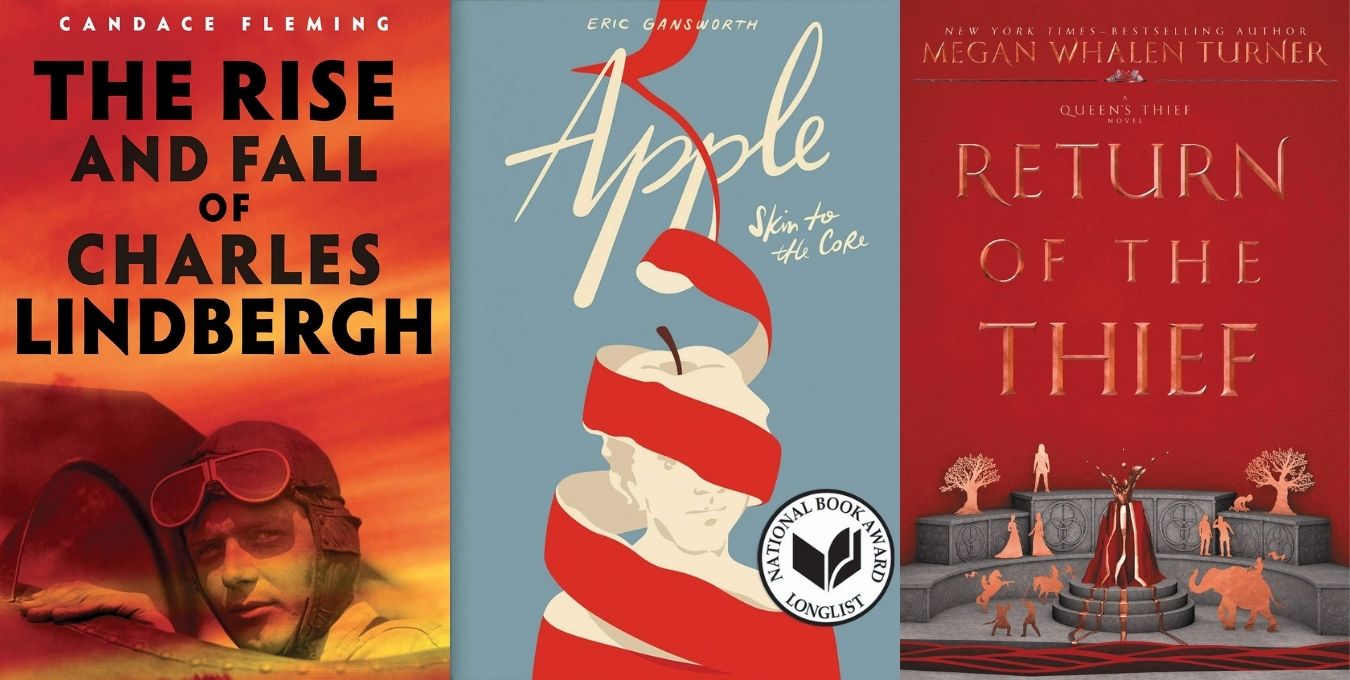Look Who’s Talking: First Person/Present Tense Narrative Voice
 By the third page of See You in the Cosmos by Jack Cheng, I am absolutely hooked: not because it has an unusual narrative device and not because of the almost stream-of-consciousness, intimate, conversational tone, although both are immediately noteworthy. I am hooked by the book’s unique and affable protagonist Alex, a first person/present/immediate past tense young narrator. When Alex brings home a lost puppy, his mother’s absent-minded response informs me that something is not quite right: “she doesn’t care as long as I make us dinner and don’t bother her when she’s watching her shows.” I expect Alex to feel self-pity about his mother’s negligence. But instead, Alex just says, “She’s a pretty cool mom,” and goes on with his daily routine. His special perspective about the world contradicts and challenges my jaded perception. By page 5, I know I am in for a literary treat.
By the third page of See You in the Cosmos by Jack Cheng, I am absolutely hooked: not because it has an unusual narrative device and not because of the almost stream-of-consciousness, intimate, conversational tone, although both are immediately noteworthy. I am hooked by the book’s unique and affable protagonist Alex, a first person/present/immediate past tense young narrator. When Alex brings home a lost puppy, his mother’s absent-minded response informs me that something is not quite right: “she doesn’t care as long as I make us dinner and don’t bother her when she’s watching her shows.” I expect Alex to feel self-pity about his mother’s negligence. But instead, Alex just says, “She’s a pretty cool mom,” and goes on with his daily routine. His special perspective about the world contradicts and challenges my jaded perception. By page 5, I know I am in for a literary treat.
Unexpected and sometimes paradoxical views abound in this epic road trip of an 11-year-old boy on an eventful quest who serendipitously creates intimate bonds between his families and strangers.
Alex’s episodic recording as the narrative device retains its integrity and is used to build tension and build character depths. The often worrisome and sometimes quite humorous scenarios deliver subtle wisdoms that are not only just right for the book’s target audience, but also stretch young readers’ understanding of the world.
ADVERTISEMENT
ADVERTISEMENT
Cheng also handles the tricky first person/present/immediate past tense narrative style with grace. Even though this POV is very common in books for children these days, it is often not the best stylistic choice. When writers decide to portray young people with limited life experiences and literary practices using first person/present tense, they must refrain from letting themselves and their literary training seep into the minds of their narrators.
If I were on the Newbery Committee and both See You in the Cosmos and The Ethan I Was Before are on the table, I would emphatically argue that Ethan’s narration is much less convincing than Alex’s. Standish could not help but making Ethan too writerly, using phrases like “The next room which boasts a dining table…,” “a mischievous smile plays on her face,” “Shooting me a bemused look,” and “My gaze flits around the entry hall as though I’m expecting a 3rd shadowy figure lurking around the corner.” This last sentence gives me pause: why would a person’s internal monologue describes his own external action with such uncertain descriptor (“as though”)?
Unlike Standish, Cheng maintains Alex’s young voice and perspective consistently. His voice recording sounds authentic: “Every. One. Is. So. AWESOME. I’ve never met so many people who love rockets and space as much as I do.” His questions encourage both the older characters and the readers to ponder the meanings of readily accepted concepts (such as the many definitions of “retreat”) and the nature of love, like when Terra has to explain the “chemistry” between Ken and his wife. Cheng lets Alex describe his circumstances plainly and let the readers form clear images of the complex situations Alex has to confront without making Alex talk or think beyond his age – even his “responsibility age of thirteen.”
I am so pleased to have read this book by a first time author and look forward to reading his future work!
Filed under: Book Discussion
About Roxanne Hsu Feldman
Roxanne Hsu Feldman is the Middle School (4th to 8th grade) Librarian at the Dalton School in New York City. She served on the 2002 and 2013 Newbery Committees. Roxanne was also a member of 2008-2009 Notable Books for Children, 2015 Best Fiction for Young Adults, and the 2017 Odyssey Award Committees. In 2016 Roxanne was one of the three judges for the Boston Globe-Horn Book Awards. You can reach her at at roxannefeldman@gmail.com.
ADVERTISEMENT
ADVERTISEMENT
SLJ Blog Network
Happy Poem in Your Pocket Day!
This Q&A is Going Exactly As Planned: A Talk with Tao Nyeu About Her Latest Book
Family Style: Memories of an American from Vietnam | Review
Parsing Religion in Public Schools
ADVERTISEMENT








Thanks Roxanne, for articulating why Alex is such an enjoyable and effective narrator. I also like the way that some of what Alex tells us reveals more what’s going on than he actually realizes himself. He’s “clueless about a lot of things” (as Tessa puts it), like his mother’s situation and his father’s “amnesia, but most young readers will sense that there’s more to those than what says in his recordings. We catch onto things before Alex does sometimes. But we still don’t get the details until he does, so the narrative style adds to the plot tension, as Roxanne notes.
Oof.
Part of me thinks, “If you don’t have anything nice to say, don’t say anything at all.” Part of me really wants to lay out every element of the book that fails for me on just about every level.
This was not the book for me. Everything you liked about Alex, I disliked and found inauthentic, cloying, and annoying. And my distaste for the book was immediate – by page 5, I was exhausted by him. I soldiered through, though, and felt the book relied too heavily on coincidence for my tastes. I did like the recording conceit, but Alex’s voice and the manner in which the story was told got under my skin.
Because his voice is so very distinct, I wonder if this is what will affect most people’s opinions of the book. An obvious comparison would be Christopher in The Curious Incident of the Dog in the Night-time – kind of a love him or hate him narrator. Having said that, I think a lot of children will respond positively to Alex and find him amusing, rooting him on. He just wasn’t for me. At all.
I agree with you completely, Joe. I actually really had a hard time getting through this book because I disliked Alex so very much and found him unbearable in so many ways. Maybe I should do my own post?
I can’t decide if I found his voice authentic and convincing or not. I preferred Ethan’s voice and felt that Alex read more like an adult’s idea of a childs’ voice. But that may be my adult perceptions. This is definitely one of those titles where I didn’t like the narrator/protagonist and I have a very hard time getting past that.
How interesting that we have the opposite reactions to Alex’s and Ethan’s voices. I also found that in Ethan, the “hidden truth” of his friend’s condition totally obvious and contrived. I knew that she didn’t die. And from later on, we also see that Ethan was consciously understanding that she’s not dead — so when he had the internal monologue, not understanding about why her father calls Ethan’s father, it does not ring true to me. It feels like a ploy in fooling the readers and not delivering an authentic character. Alex, on the other hand, simply presents what he observes and the readers are more clued in to his situations than him and in a thoroughly age/character appropriate way.
I kind of fall in between loving and hating this book. For me, there were too many convenient plot points – especially how the story ended, and several times the situations Alex found himself in were simply unbelievable. However, the format of this book was so original, and Alex’s voice really rang true for me. I found his character annoying, but intentionally so, and the story is truly compelling. I’m curious to see how the story translates in audio format. All in all, I think it’s a book kids will love, but I think it will be too divisive for a medal.
I went into the book with an expectation of extremely “outlandish” scenarios because I read someone’s review saying how much they just couldn’t suspend their disbelief after a while. And yet, I found all of the helpers on the way completely within the realm of believability. Perhaps my own experience of being helped by complete strangers while on foreign land and finding my long lost family members and many other lucky or chance encounters make me less skeptical. I also see that Cheng made sure that all Alex’s encounters have fairly reasonable threads leading to the events.
Alex’s voice reminds me of so many of my students who are extremely wise in certain areas and absolutely clueless in others and yes, perhaps he could be not the easiest to deal with but definitely not a bland character.
Finally, I found Steve (the adult supporting character) fascinating: he’s obviously an “operator” who might or might not have “reformed” by Alex — having that slightly loose thread gives the book more depth.
Yes, yes, yes, to every thing you said here, Roxanne. Steve seemed so real to me. Also, Alex’s lopsided world knowledge. I can’t remember what he was referring to, when Terra told him that for someone who knows so much about some things he is clueless about a lot of stuff. I loved his response. (Issue with audio book is that I can’t thumb back and find the exact quote, so I’ll make it up.)
“Terra, of course I don’t no anything about _________, because I need to use my time and brain to think about space and contacting alien life. If I spent all my time learning about ________ I’ll never get into space.”
I say something similar to my family, “Of course I know nothing about car mechanics. If I had to think about keeping the car running, I’d never figure out which book should win the Newbery. And then where would the world be?”
Erin — I am curious as to why the ending does not meet your expectation.
Someone on GoodReads yelled at me to read this. So, I did. Thanks, Roxanne.
Actually, I used an Audible credit on it. (Good call on that one, DaNae). Mostly, I dislike gimmicky audio devices. I see full-cast recording and I’m like, “No thanks”. But the construct of this book worked to create something like a radio drama, using different narrators for each character and adding in sound effects. For me, it was sublime. I have’t checked the hardcopy, as it is checked-out, to see if any license was made with the original text.
I found Alex, and all the characters, completely genuine, particularly the ones who were hard to like, Steve and Alex’s brother. I didn’t always find the plot turns believable. However, If you give me real people I’m okay with a bit of contrivance. If it is not too much, and if a “god from a machine” doesn’t show up. Alex’s emotional life firmly connected me to the story. It rose high on my list of favorites for this year, although I’m not sure it is strong enough to make the Newbery cut.
Might I also add – as someone who has lost a beloved dog in another state, and been forced to drive away without her, only to find a message on our machine when we got home that our Scout was safe and in the custody of a Good Samaritan – Carl Sagan’s misfortune rang utterly true. I can easily recall the sick feeling in my stomach of those two days. Alex described it perfectly.
YES. YES. YES! I have already mentioned this one as a frontrunner for me and for so many of the reasons y’all have already noted. I loved Alex and found him to be true and real, and the group of our kids who read this for summer reading this year uniformly loved it and him. I do think it rises to the Newbery occasion perhaps because of – not in spite of – its divisive responses. If I were on the committee I’d want to probe the question of whether a reader not liking Alex’s voice must necessarily be a mark against it. Could it not be equally true that having a strong dislike of a character might be a sign of great skill, consistently applied? Could it be that our disagreement on the issue of Alex’s voice is more similar to (and thus, a true mark of great writing) the way we each respond differently to real people, real voices, sometimes dramatically so? Finally, and I hesitate to say it, but Alex in real-life would definitely be a challenging student or patron, would he not? I think I land solidly on the truth of Alex BECAUSE he is not universally likable because, honestly, who among us is? I fear I haven’t articulated this well, so I welcome pushback.
Also, I realized a bit ago that I never introduced myself. I’m sorry! I am the Director of Learning Commons at a Prek-12th private school in Chattanooga, TN. Recently come to the library world from teaching English and book blogging for years. Hi!
Hi, Sara. Thanks for your input. I do think that Alex’s voice is incredibly successfully done, especially it seems to me that some young readers will either see themselves or their peers without the author labeling him as being just a kid with his own quirks. Nonetheless, the divisive responses to him and the author’s choice of voice/style would need a very savvy committee member who loves this book to articulate and lobby for its award worthiness.
So glad to hear that your students liked the book. How older are you?
I’m guessing COSMOS will go down like WONDER and OKAY FOR NOW — beloved and popular, but not destined to win any literary awards. It’s just too easy to poke holes in this book. So many readers find the plot far-fetched (not only is it full of convenient coincidences but it’s troubling that a lone kid is transported great distances –across state lines!– by adults who ought to know better). Though the “recordings” style is creative and done pretty well, the book is still chock full of worn out tropes (precocious kid, wacky road trip, secret family, quirky secondary characters, a lovable dog put in peril to crank up emotion). I could be wrong, but I think it will be hard to build consensus around this.
That said, I did enjoy this book (just as I really enjoyed WONDER and OKAY FOR NOW). I hope a lot of kids read it and look forward to more books from Mr. Cheng.